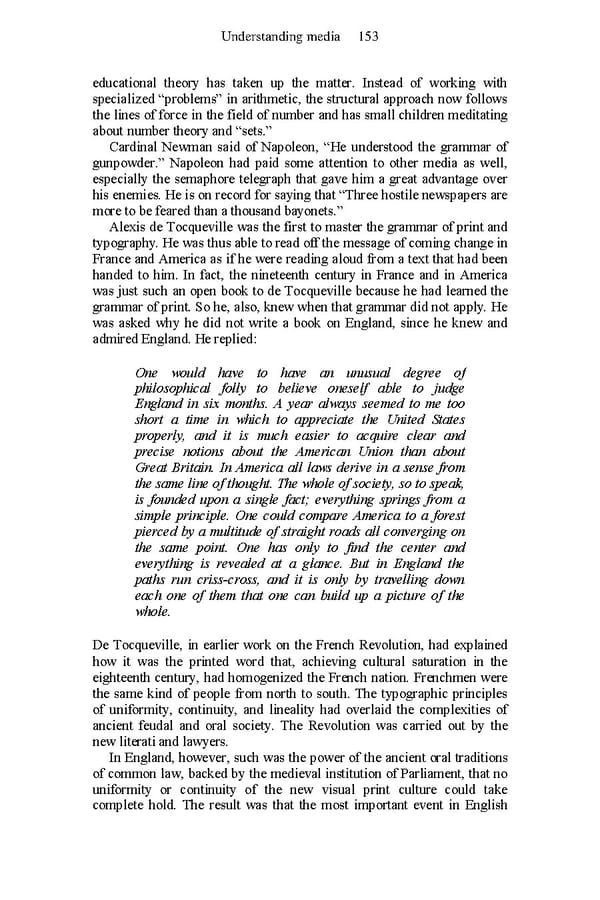Understanding media 153 educational theory has taken up the matter. Instead of working with specialized “problems” in arithmetic, the structural approach now follows the lines of force in the field of number and has small children meditating about number theory and “sets.” Cardinal Newman said of Napoleon, “He understood the grammar of gunpowder.” Napoleon had paid some attention to other media as well, especially the semaphore telegraph that gave him a great advantage over his enemies. He is on record for saying that “Three hostile newspapers are more to be feared than a thousand bayonets.” Alexis de Tocqueville was the first to master the grammar of print and typography. He was thus able to read off the message of coming change in France and America as if he were reading aloud from a text that had been handed to him. In fact, the nineteenth century in France and in America was just such an open book to de Tocqueville because he had learned the grammar of print. So he, also, knew when that grammar did not apply. He was asked why he did not write a book on England, since he knew and admired England. He replied: One would have to have an unusual degree of philosophical folly to believe oneself able to judge England in six months. A year always seemed to me too short a time in which to appreciate the United States properly, and it is much easier to acquire clear and precise notions about the American Union than about Great Britain. In America all laws derive in a sense from the same line of thought. The whole of society, so to speak, is founded upon a single fact; everything springs from a simple principle. One could compare America to a forest pierced by a multitude of straight roads all converging on the same point. One has only to find the center and everything is revealed at a glance. But in England the paths run criss-cross, and it is only by travelling down each one of them that one can build up a picture of the whole. De Tocqueville, in earlier work on the French Revolution, had explained how it was the printed word that, achieving cultural saturation in the eighteenth century, had homogenized the French nation. Frenchmen were the same kind of people from north to south. The typographic principles of uniformity, continuity, and lineality had overlaid the complexities of ancient feudal and oral society. The Revolution was carried out by the new literati and lawyers. In England, however, such was the power of the ancient oral traditions of common law, backed by the medieval institution of Parliament, that no uniformity or continuity of the new visual print culture could take complete hold. The result was that the most important event in English
 Essential McLuhan Page 159 Page 161
Essential McLuhan Page 159 Page 161